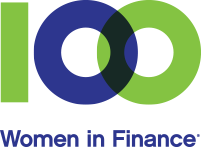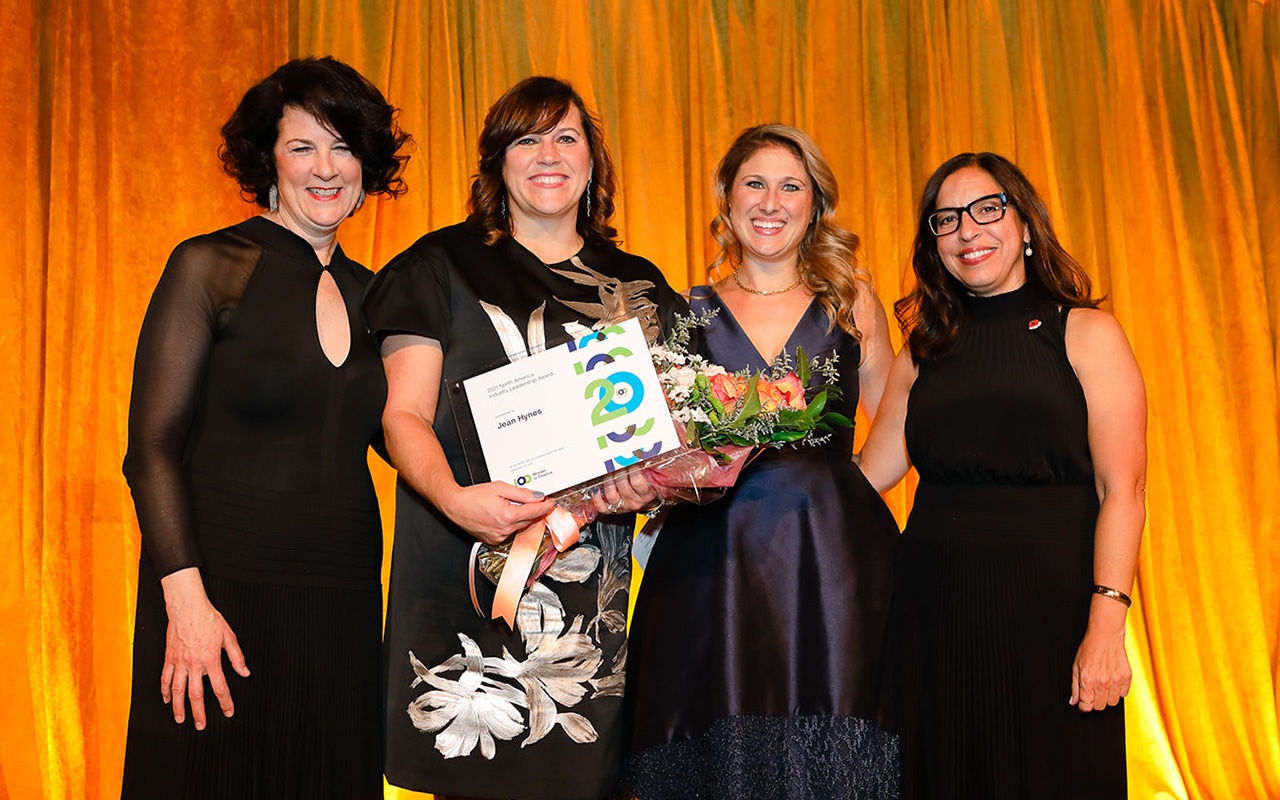Jean Hynes, Wellington Management’s CEO, discusses why a diverse workforce, equitable opportunities for all colleagues, and an inclusive culture are critical to achieving the firm’s mission.
Each year an exciting fundraising gala is held in New York to raise money in support of 100 Women in Finance Foundation (100WF Foundation). At this year’s 21st annual gala 100WF announced a new award to celebrate companies leading innovation and positive action in Diversity, Equity, and Inclusion in the Finance Industry. In good company with strong competitive peers, 100WF recognized Wellington Management with this year’s award. Proud of her 30 year career with Wellington Management, Jean Hynes, the winner of 100WF’s 2021 Americas Industry Leadership Award (AILA), takes a moment to share her perspectives on the firm’s DEI journey, successful strategies, and the importance of working with 100WF to drive the movement forward.
Jean, you’ve been with Wellington Management for over 30 years. During that time you and Wellington have established a strong relationship with 100WF and watched as it has grown organically over the years. What has that growth looked like from the early days to today?
Wellington has a long-standing relationship with 100WF and is proud to have been part of its journey from 100 Women in Hedge Funds in NYC to the global organization it is today. In the earlier years, a number of Wellington women were individual members of 100 Women in Hedge Funds and actively participated across a range of volunteer committees, driving engagement and building the profile of 100WF both within our own organization and beyond. 100WF continued on its globalization journey, establishing chapters in new locations. Wellington, as a global firm, began to observe even more synergies and opportunities to partner across topics that were important for us in locations where we have global offices. As a result, we established a formal corporate sponsorship relationship in 2014. 100WF continues to play an important role in supporting women through their career stages. I have observed this firsthand by benefiting from opportunities to speak at events, serving as a role model and more recently by joining the CEO Circle peer network. Today, Wellington women continue to actively volunteer across various committees, speak at education and peer engagement events, and serve as mentors and role models for the next generation of talent. Working closely with Amanda, we have been proud to be involved with the Leadership Council and partner with 100WF to grow the organization, adding new chapters in Frankfurt and other locations and continue to drive change in our industry.
In previous reflections, you stated that diversity, equity, and inclusion (DEI) is a priority for Wellington. How have you and the company been able to make meaningful and measurable progress working to advance women and inspire them to become future leaders? Tell us what that looks like.
Our approach to fostering a diverse, equitable, and inclusive culture is driven by the senior leaders of the firm, including myself. Including implemented managers, supported by employees, and guided by our Chief Diversity Officer and dedicated team of certified GDEI professionals. Our management team articulates the strategy, aligns functional and local office management behind the mission, and ensures accountability. Our commitment to DEI is woven into our business activities and reflects the outstanding people which are at the heart of our mission: To drive excellence for clients and positively impact millions of beneficiaries’ lives. I believe that a diverse workforce, equitable opportunities for all colleagues to reach their potential, and an inclusive culture are critical to achieving that mission. Diverse and inclusive teams help us generate differentiated insights, long-term solid investment results, and solutions to complex client problems. They support our efforts to attract and develop the next generation of talent globally. They align with our values and commitment to the communities in which we live and work. DEI is core to who we are, and there is much more that we are doing to strengthen our existing workforce and culture. I believe that our ability to make progress has been driven by the fact that we have significant engagement and deliberate processes led by senior management, an internal and external DEI focus, and an understanding that many efforts are needed to make progress over time.
As a mother of four daughters, you are committed to increasing the number of women in finance by expanding its employment pool in hiring, recruiting, training, and retaining women of all backgrounds. What advice would you give to women of any age who are interested in finding their footing in the finance industry?
When speaking to people about careers in finance, I tell them that having a degree in finance is not required to pursue a career in the financial services industry. In addition to finance and accounting, there are numerous fields such as technology, marketing, client service, legal and compliance, to find challenging and rewarding opportunities that match with their skills and interests. I always encourage women (and men) to ask questions. It is the most powerful way to learn and discover new information and open windows. I also believe in the power of mentorship and have been very fortunate to have had tremendous mentors throughout my career. The good thing about the practice of investing is that it is gender-blind, and there are many men who helped guide me on the journey from research to portfolio management to leadership. I also learned from a group of extraordinary women partners at Wellington — women who helped pave the way for me and others in a firm that, like many, had ambitions but still needed to make progress in a male-dominated industry. As an industry, I believe we are making headway to create opportunities for women, but we still have plenty of work to do. For our part, Wellington has been on a journey to attract and develop female talent throughout our business and specifically in investment roles. There have been improvements, with more than a third of our senior leadership roles now held by women, for example. And this is just a start. I strongly believe that being very deliberate makes a large difference: mentoring, role modeling, providing stretch assignments and encouraging risk taking— these are all priorities for me as Wellington’s CEO. The great work that the 100WF and its members are doing, particularly through their JumpStart and LaunchMe programs, are inspiring young women to pursue their own career interests, wherever that takes them, and is providing another stepping stone for the next generation of financial services professionals.
Thank you, Jean for providing our readers with your thoughtful, inspiring, and insightful look into the framework and execution of a successful diversity, equity, and inclusion program. With your leadership in the finance industry and support from organizations like 100WF, we can work together and build momentum for 100WF as it seeks to achieve its Vision 30/40.

